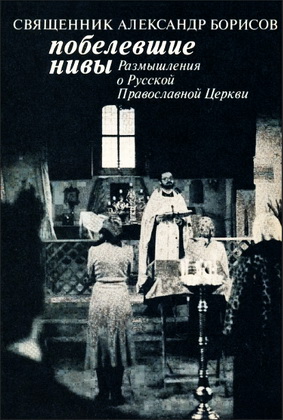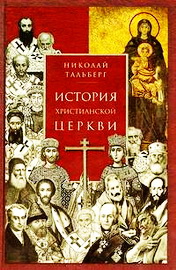
Historical Dictionary of Ancient Greek Philosophy - книги и модуль BibleQuote
Constructing a general bibliography for ancient philosophy is a complex task. Fortunately there are ongoing bibliographic resources to which the student may turn for assistance. The most important of these is L’Année Philologique, including well over 400,000 bibliographic records since 1969, with over 12,000 added each year. The published volumes of L’Année Philologique go back to the 1920s; currently new materials are added online. As a rule, scholarly libraries subscribe. The major drawback is that they are usually two or three years behind in updating the system. For more information, here is the site: http://www.annee-philologique.com.
The Philosopher’s Index began publication in 1967. While it is not as complete as L’Année Philologique, it tends to be more nearly up to date. Its home page is http://www.philinfo.org. A very good general index is Periodicals Index Online (formerly known as Periodicals Content Index). The home page is http://pio.chadwyck.co.uk/marketing.do. Many libraries subscribe to one or both of these services.
The major journals specializing in ancient philosophy and publishing articles in English are Phronesis, Ancient Philosophy, and Apeiron. Many of the general philosophy or classics journals also publish a significant number of articles in ancient philosophy—the Review of Metaphysics, Philosophical Review, Mind, Journal of the History of Philosophy, Archiv für Geschichte der Philosophie, American Journal of Philology, and Classical Quarterly are a few examples of journals that often publish high-quality articles in ancient philosophy.
The print resources consulted frequently for constructing the present work include, most importantly, Liddell, Scott, and Jones, Greek-English Lexicon, 9th edition, and F. E. Peters, Greek Philosophical Terms (New York University Press, 1967), for the Greek words, and Donald J. Zeyl, editor, Encyclopedia of Classical Philosophy (Greenwood Press, 1997) and Trevor Curnow, The Philosophers of the Ancient World: An A–Z Guide (Duckworth, 2006), for philosophers. Our entries are, on the whole, not as detailed as those of either Peters or Zeyl, but are more inclusive, with more Greek terms than Peters, more philosophers than Zeyl, and generally more information than Curnow.
We also used several online resources, most notably the Stanford Encyclopedia of Philosophy, http://plato.stanford.edu, and the Internet Encyclopedia of Philosophy, http://www.iep.utm.edu. These two sites feature signed articles, often (not always) by one of the ranking authorities in the world on the topic discussed. If one of these sites has an article on an ancient philosopher or topic, it is very possibly the most complete, most reliable, and most up-to-date reference resource available. Brill’s New Pauly is the only print source that can compete. One noticeable difference between the Stanford and the IEP is that if Stanford does not have a good article on a topic, it does not have one at all; IEP includes “stubs” or material cribbed from out-of-copyright sites elsewhere on the Web, often better than nothing, but not necessarily better than a good print source.
Wikipedia (http://en.wikipedia.org/wiki/Main_Page) is, we may say, controversial as a scholarly resource. For topics in ancient Greek philosophy, many or most of the articles are ultimately based on the 11th edition of the Encyclopedia Britannica, published in 1911, and then made available to anyone who wishes to edit them, essentially. The result is that it is extremely likely that there will be some information on almost any ancient philosopher, and on many philosophical topics that can be formulated clearly enough to be searched. Sometimes Wikipedia articles are every bit as good as the competing articles on Stanford or IEP, but given the fluidity of the Wiki process, there is always a question about reliability. For most (not all) topics in ancient philosophy, there is little motivation for people to do wholesale flimflam on a Wikipedia page, but there is always a possibility that you are reading an article edited most recently by a high school student with a sense of humor. One article I checked, on a minor Hellenistic philosopher, ended with the sentence, “And in addition, he loved bacon double cheeseburgers.” Two days later, the sentence was gone; the Wikipedia managers can be pretty efficient. Given the fluid nature of the Wikipedia articles, we have decided not to include them in the bibliography; at the same time, recognize that Wikipedia might be the most convenient place to find out significantly more on a topic discussed in this dictionary, and could have information not otherwise readily available.
Historical Dictionary of Ancient Greek Philosophy (Historical Dictionaries of Religions, Philosophies, and Movements Series)
Rowman & Littlefield Publishers, 2015. - 540 p.
ISBN 978-1442246386
HYPOTHESIS
Ὑπόθεσις. Literally, something that is “put under.” (Hypo, under; plus thesis, that which is placed.) Widely used for all sorts of “proposals.” In the Meno (86e), Socrates describes (somewhat obscurely) a hypothetical method used by geometers and then suggests a parallel method for examining “virtue” (aretē) that involves the supposition that if virtue is knowledge (epistēmē), then it can be (or is) taught. In the Phaedo (100–101), Socrates again resorts to a hypothetical method that involves asserting a plausible hypothesis and examining its consequences until one finds that it leads to a contradiction. In the Republic (VII.533c, in the Line passage), dialectic is said to be the art that “eliminates hypotheses and proceeds to the first principle.” In the Parmenides, Parmenides describes the method of dialectic as examining both the hypothesis and its negation (136).
Aristotle uses the word hypothesis to refer to a fundamental presupposition; for example, he says that “the hypothesis of a democratic constitution is freedom” (Politics VI.2, 1317a40). He also often uses the word in a logical sense, either for a postulate (undemonstrated first principle) or for a proposition that is “proposed” for proof or refutation. Finally (in this rapid summary), in his discussion of necessity, hypothetical or conditional (ex hypotheseōs) necessity is contrasted with “simple” necessity (Physics II.9, 199b34; Parts of Animals I.1, 639b24).
POLIS
Πόλις. City, state. One aspect of the classical polis that is easily forgotten by modern people is that the normal polis was a walled city. That has a lot to do with what people thought about the normal size of a polis. Τhe Greek-speaking world included many poleis; while the size of these poleis varied considerably, Attica, at a population of perhaps 200,000, would have to be counted among the largest. The political theories of both Plato (both Republic and Laws) and Aristotle assumed unquestioningly that political units of that size (or rather smaller) were good and right and natural. Yet they were well aware that the Greeks had fought off the Persians by uniting into a larger confederacy and that confederacy was succeeded by the Delian League, ultimately dominated by the Athenians and opposed by a confederacy led by the Spartans. They also knew about the empire of the Persians, of course, and the Macedonian kingdom, and Aristotle, especially, witnessed in the course of his lifetime the expansion of Macedonia to an empire greater than the world had ever seen.
Why did they cling to a model that could not survive? Of course many cities continued to have walls, and there was thereby a local identity. For Aristotle at least, the answer must also include the idea that the traditional polis offered the opportunity for a significant percentage of the citizens to have direct participation in real political decision making. While the Hellenistic kingdoms often left local affairs to the traditional local decision-making bodies, no one was fooled. Independence was gone, even if the rulers allowed some of the poleis to keep their walls and local self-governance.
But Hellenistic philosophers adjusted, one way or another. Epicureans simply avoided public life entirely, on the ground that it was more likely to be painful than pleasurable. Stoics, however, were willing to accept whatever responsibilities might come to them. From their perspective, the wise person is a “citizen of the universe,” kosmopolitēs (SVF III.82). For the wise person, there are no walls. See M. H. Hansen, Polis, 2006.





Комментарии
Пока нет комментариев. Будьте первым!